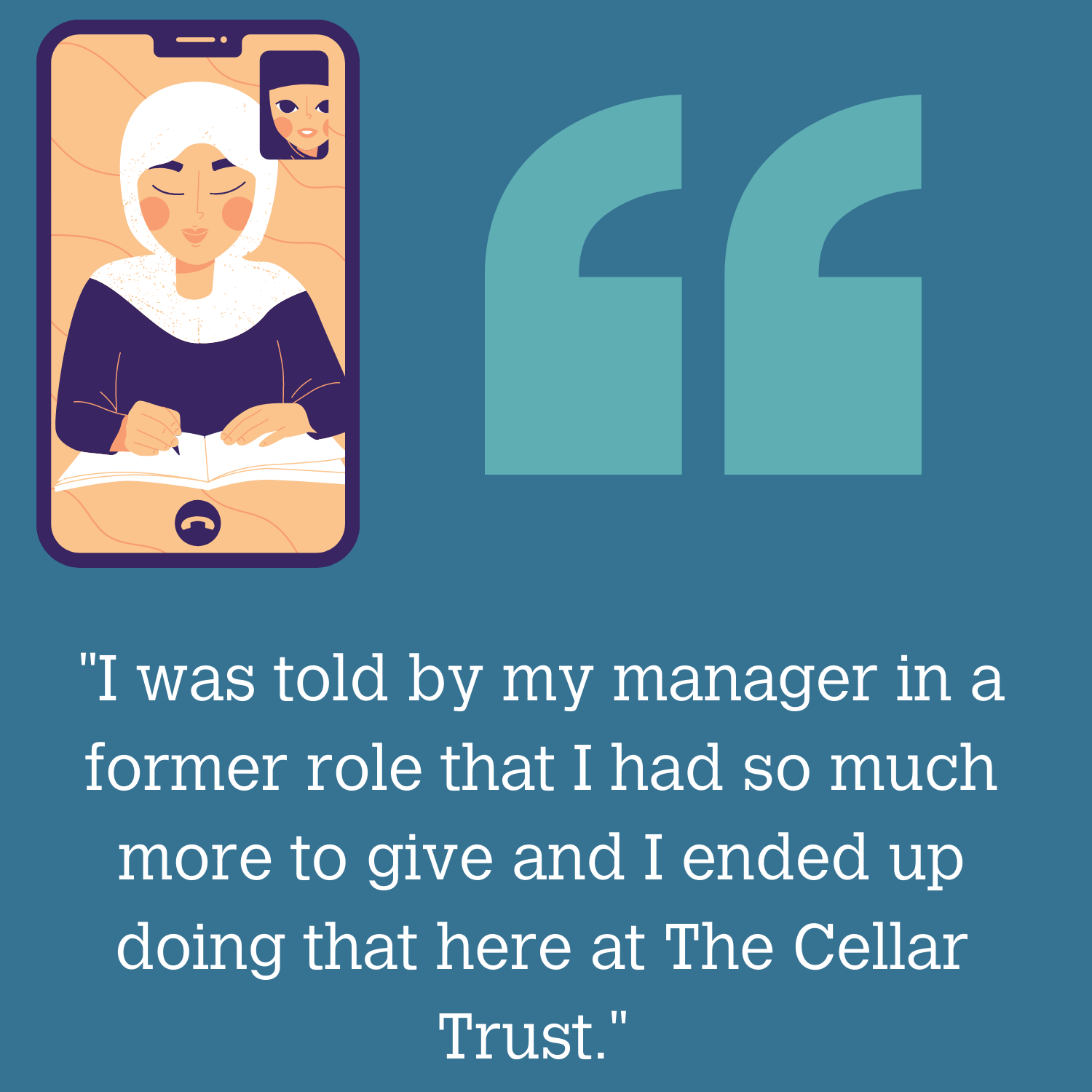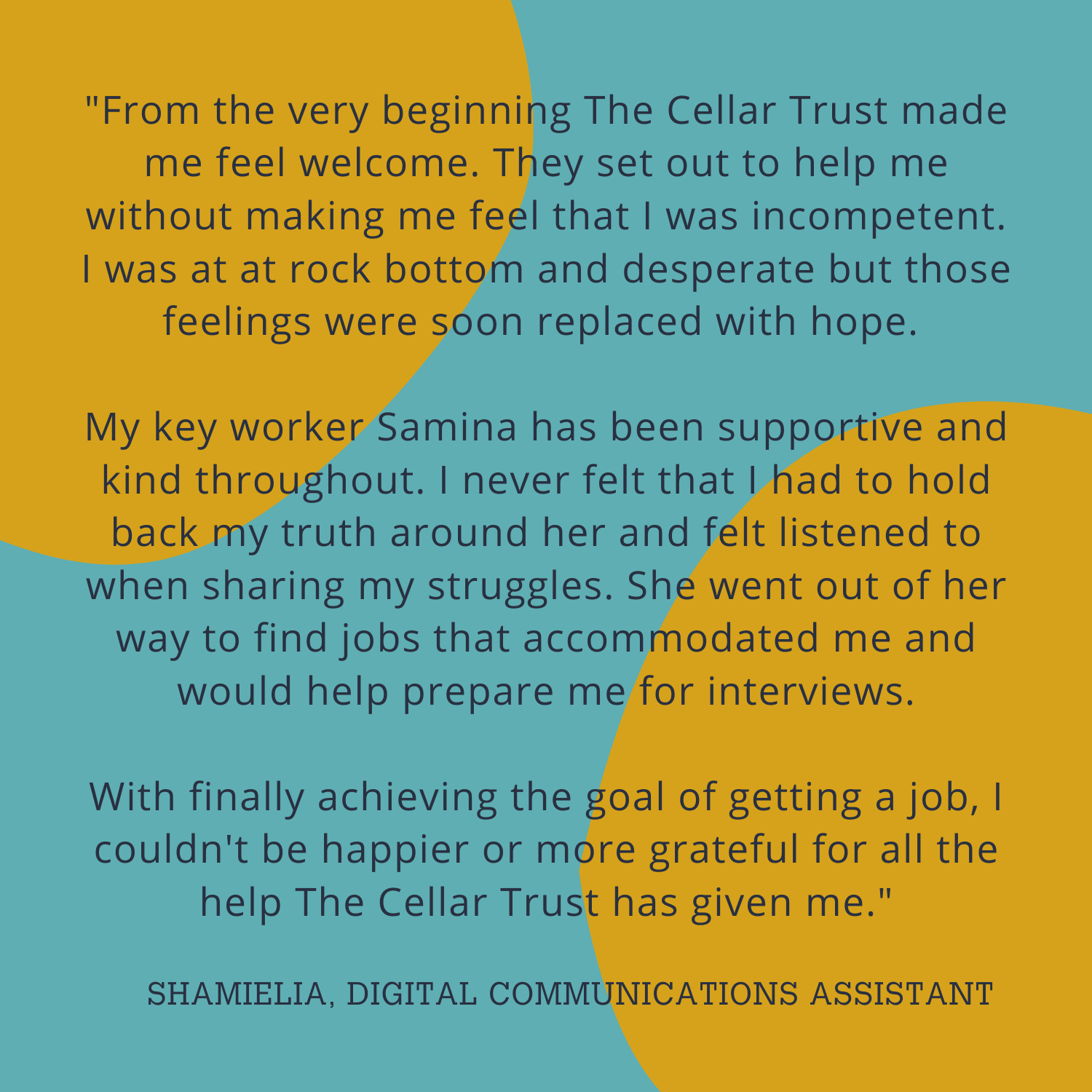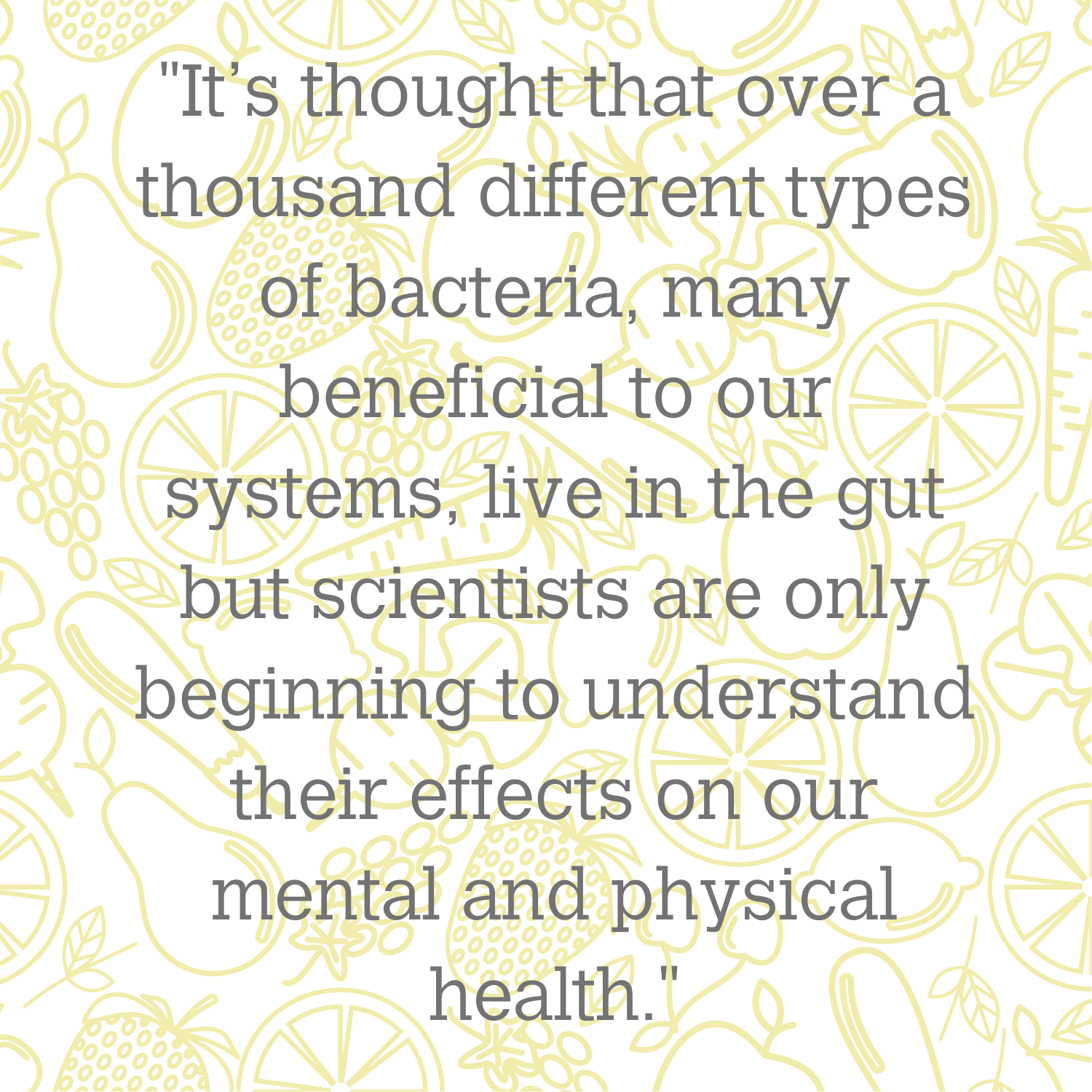As our first Meet the Team we are featuring Samina – she’s simply one of the friendliest, most hardworking and empathetic people who we have the pleasure of working with every day. She has a fantastic wealth of employment experience and she uses it to make such a difference. We got talking to Samina, in and amongst her busy schedule…
What’s your role here at the Cellar Trust?
I work in the Pathways to Employment team, I’m a Pathways to Employment Specialist.
What do you do?
My role is to help people find their way back into employment. People who have experienced difficulties with their mental health and finding it hard to get back into work whether that’s voluntary, work placements or paid work. I do regular check-ins and counselling to support people through the process. It might be that they need sign posting to any courses or peer support groups or they may need support looking for jobs, writing their CVs, filling in applications or doing mock interviews. I’m there to help support them in any way I can. I also work with the Cellar Trust’s Partnership Engagement Officer who works with local organisations and businesses to find any vacancies to fill and I share these with my clients.
Once my clients find a role my work doesn’t stop there. I also offer In-work support. This is a 6 month check-in and support service that helps ease our clients back into work. So, if they need someone to talk to they have that. This helps to keep everything in-house as much as possible so we can offer our clients some continuity.

What brought you to The Cellar Trust and what skills do you need to do your job?
I have always, always loved helping people. I worked at Bradford University as a researcher around Mental Health, and at Bradford and Shipley colleges as a Trainer/Placement Officer. I was told by my manager in a former role that I had so much more to give and I ended up doing that here at The Cellar Trust. I love working alongside people and helping them to realise their skills and their potential. I love what I do – I’m basically a workaholic actually!!
I have worked a lot in volunteering and my work has been all about building people up and helping them; making a difference in people lives.
I’m multi-lingual; Urdu, Punjabi, Hindi, Macraani, basic French, German and Arabic speaking which really helps in interpreting and translating so that we can reach as many people in our communities as possible.
What do you love most about The Cellar Trust?
Even though we have different departments, we all work together to offer the very best to clients. We help each other to get the very best outcome for them. We are very transparent and accommodating as colleagues so we communicate very well and keep our clients at the centre of everything we do. Our CEO, Kim Shutler, is just brilliant – the very best. She’s very hands-on and approachable. Some CEO’s aren’t like that. She always makes herself available.
What do you love most about what you do?
Oh my gosh – making a difference to people’s lives. Whether it’s supporting them to get a job, helping them help themselves or boosting their self-esteem. I just love that part of my job. Just seeing the change in someone and know I had a part to play in that means everything.
 If you had one message to give to people what would it be?
If you had one message to give to people what would it be?
I would say come to The Cellar Trust so we can help you help yourselves reach the goal you’ve been aspiring to.
If you would like to learn more about how the Pathways to Employment team can help you click here





 If you had one message to give to people what would it be?
If you had one message to give to people what would it be?
